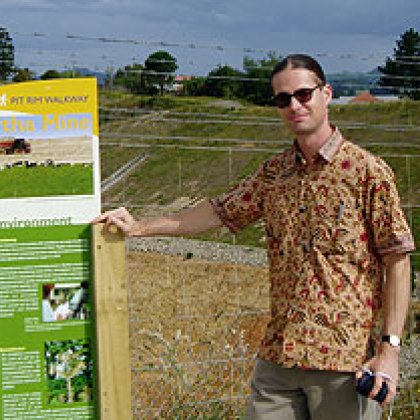
Australian minerals industry giants may undertake community consultation in a bid to sidestep government regulation, a University of Queensland study has found.
The research project, which was conducted in partnership with three major minerals companies, found corporations sought to demonstrate they could be responsible with power over communities and the environment.
The study's author, Dr Richard Parsons, said some minerals industry staff tended to view community engagement activities in terms of economic costs and benefits, rather than social and community outcomes.
"When industry interviewees from the study talked about 'development', the main consideration was usually economic activity, rather than community cohesion," Dr Parsons said.
"They might ask themselves, 'Can we make a business case to justify reducing the operation's use of groundwater, or to help funding an Indigenous community centre?', for example.
"This has profound implications for the way we think about community engagement, as it means that we risk prioritising economic over social objectives, although we may do so unconsciously."
Dr Parsons' study, conducted from the UQ Business School and UQ Centre for Social Responsibility in Mining, focused on corporate and community perceptions of engagement and how these influenced company-community relations.
"Some community members were very passive and happy to receive information, while for others it was about, 'How can I get something out of this company? Money for the pony club, perhaps, or a contribution towards connecting a town water supply'," he said.
"For some Indigenous community members, genuine community engagement meant the company demonstrating an awareness of traditional Indigenous values, such as respect, sharing, and non-materialism."
Dr Parsons also examined the way language was used in corporate sustainability reports and websites to downplay public opposition.
"For some corporations, engagement was simply about providing information about their operations, which implied a somewhat one-way means of communication and assumed that information was objective and value-free," he said.
The study found community engagement had gained relevance in the minerals industry in accordance with rising community expectations.
"Society has come to expect more from large corporations, especially those with histories of adverse social and environmental impacts," he said.
"Given the dynamic and contestable nature of company-community relationships, managers may find that community engagement approaches based on order and rationality are no longer useful in dealing with society's changing expectations.
"Instead, they may need to develop more dialogic processes that actively engage with conflict, contradiction, and dissent."
To find out more about similar studies on the role of the mining and the minerals industry in contemporary society, please click on the links provided or contact the UQ Centre for Social Responsibility in Mining on (07) 3346 4003 or Dr Bernard McKenna in the UQ Business School on (07) 3346 8149.
Media: Further information, Dr Richard Parsons, telephone 0402 475 951.
.jpg)

